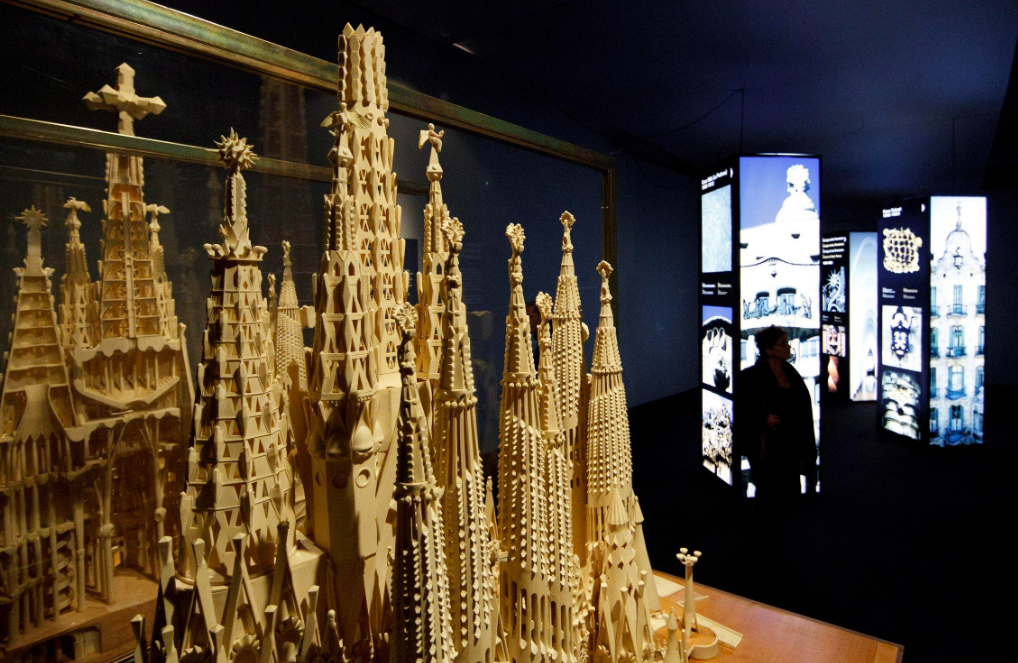VATICAN CITY (CNS) — Pope Francis advanced the sainthood causes of one woman and five men, including Antoni Gaudí, the Spanish architect who designed the Sagrada Familia Basilica in Barcelona, Spain.
The Vatican announced that the pope authorized the decrees during an audience at the Vatican April 14 with Cardinal Marcello Semeraro, prefect of the Dicastery for the Causes of Saints.
Among the decrees was the approval of a miracle attributed to Indian Sister Eliswa Vakayil, founder of the Teresian Carmelites, who lived 1831-1913; the approved miracle clears the way for her beatification.
The pope also recognized the heroic virtues of Antoni Gaudí, a Spanish architect and designer who was born in Catalonia in 1852.
Gaudí, who created many one-of-a-kind projects, eventually renounced secular art and dedicated more than 40 years of his life to building Barcelona’s Basilica of the Holy Family, often referred to by its Spanish name as the Sagrada Familia.
He started the project in 1882 when he was 31 years old; the church is expected to be finished in 2026 — the 100th anniversary of his death in 1926. When questioned about the lengthy construction period, Gaudí used to answer, “My client is not in a hurry.”
Because of his dedication to his faith and serving God through architecture, he earned the moniker, “God’s architect.”
Pope Benedict XVI consecrated the church in 2010 and granted it the status of a minor basilica. It is the most visited site in Spain, attracting millions of visitors a year, and it is one of seven of Gaudí’s works that have been declared a UNESCO World Heritage Site.
Among the other decrees approved April 14, Pope Francis also recognized the martyrdom of Father Nazareno Lanciotti, an Italian priest born in Rome in 1940 who was killed “in hatred of the faith” in São Paulo, Brazil, Feb. 22, 2001. He started serving as a missionary in a poor, remote area of Brazil in 1972, where he helped build a hospital, small churches and chapels, a nursing home and a school for hundreds of children. He also joined the Marian Movement of Priests, a fraternity of brothers and sisters who consecrate their lives to the Blessed Virgin Mary.
The area lay along a major narco-trafficking route between Brazil and Bolivia, and the priest worked diligently with young people to help them avoid falling into drugs and prostitution and to focus on Eucharistic adoration and a devotion to the Blessed Virgin. Two masked gunmen entered his residence while he was eating with others Feb. 11. While it appeared to be a robbery, the one gunman said, “I’ve come to kill you because you are bothering us too much,” before shooting him. He died 11 days later after forgiving his attackers.
Pope Francis also approved decrees recognizing:
— The heroic virtues of Father Agostino Cozzolino, an Italian priest who was born in 1928 and spent his life ministering in Naples. He was dedicated to charity, catechesis and pastoral care in poor and difficult neighborhoods. He was a member of the Institute of the Heart of Jesus, a secular institute for diocesan priests who profess the vows of poverty, chastity and obedience while supporting each other in their priestly ministry. He promoted fraternity among priests and greater spirituality in families. He died in 1988.
— The heroic virtues of Father Angelo Bughetti, the founder of the Institute of St. Catherine. Born in Italy in 1877, he launched and ran several charitable projects and activities aimed at helping the poor and orphans. He died in 1935.
— The heroic virtues of Father Peter Joseph Triest, founder of the Congregation of the Brothers of Charity, the Congregation of the Sisters of Charity of Jesus and Mary, and the Congregation of the Sisters of the Childhood of Jesus. Born in Belgium in 1760, he was known as the Belgian St. Vincent de Paul because of his charity and compassion for the poor. He founded congregations dedicated to caring for the sick, the poor, the dying, the elderly, abandoned infants and people with physical and mental disabilities before he died in 1836.


Leave a Reply
You must be logged in to post a comment.